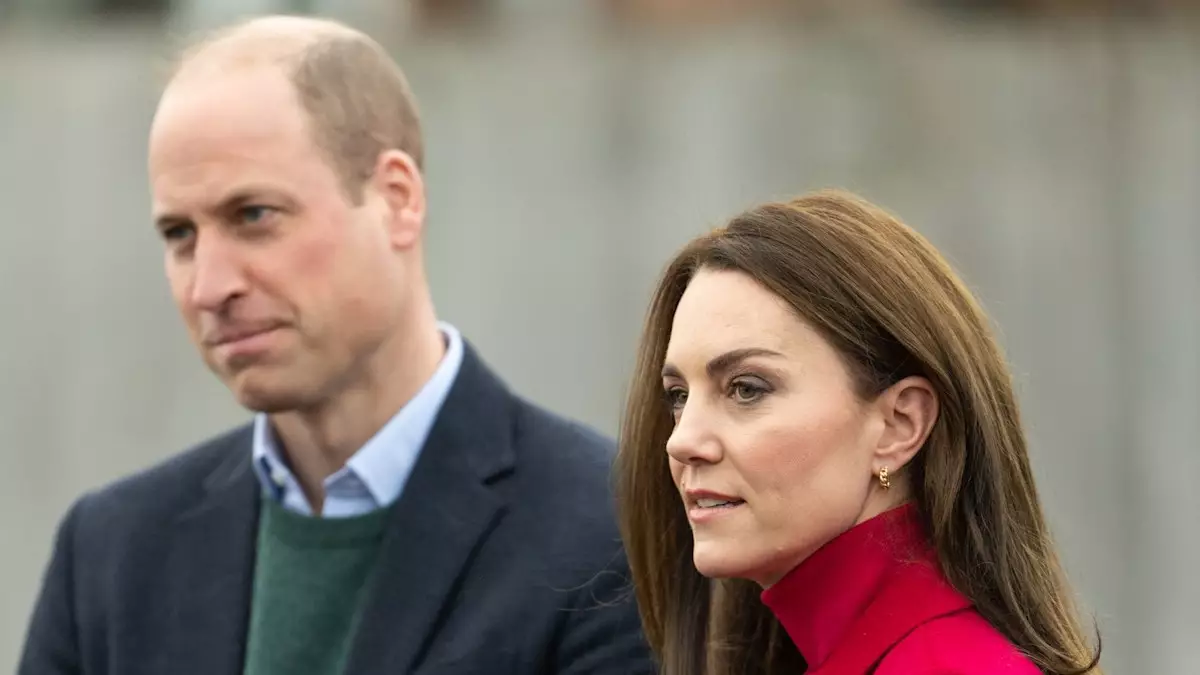In an age where the lessons of history often fade into obscurity, the recent proclamation by the Prince of Wales and Princess Kate about educating their eldest son, Prince George, on the Holocaust sets a profound example. This initiative goes beyond mere conversations; it emphasizes the critical nature of remembering past atrocities to foster understanding and compassion among future generations. The Holocaust, which resulted in the systematic extermination of six million Jews and millions of others during World War II, stands as a stark reminder of the consequences of hatred and prejudice. By engaging young minds like Prince George’s, the royal couple aims to cultivate a sense of awareness and empathy that is essential in today’s increasingly polarized society.
The conversations surrounding the Holocaust are not just about facts and dates; they are an exercise in developing emotional intelligence. Teaching children about such significant historical events requires sensitivity and a careful approach. Prince William’s acknowledgement that George is “getting to the age where he’s starting to understand things” highlights the pivotal moment when children begin to comprehend complex narratives of human suffering and resilience. It is a time when discussions can shift from simple storytelling to deeper reflections on morality and humanity.
During the recent Holocaust Memorial Day commemorations, Prince William’s interactions with survivors such as Alfred Garwood and Sabina Kadic-Mackenzie serve as poignant reminders of the human stories behind the statistics. These connections not only enrich the royal family’s understanding but also offer a platform for survivors to share their powerful narratives. Engaging with individuals who have lived through such traumatic experiences facilitates a deeper appreciation of history’s impact, fostering a personal connection that books and documentaries alone cannot achieve.
The emotional reunion between Kate Middleton and survivor Yvonne Bernstein underscores the royal couple’s commitment to building relationships and understanding the experiences of those affected by historical atrocities. Such moments are vital; they humanize history, ensuring that the memories of those who suffered continue to resonate in the hearts and minds of others.
During the commemorative ceremony, Prince William delivered a thoughtful reading that recognized not only the victims of the Holocaust but also the ongoing struggles of survivors. His words—acknowledging the “scars, both mental and physical”—serve as a reminder that while the horrors of the past cannot be undone, recognition and remembrance are powerful tools for healing.
Moreover, the royal couple’s presence at the event reinforces the notion that public acknowledgment is crucial in preserving collective memory. They are not merely figureheads sitting on the sidelines; they actively participate in the narrative of remembrance, embodying a commitment to keep history alive. This public stance sends a clear message about the importance of confronting uncomfortable truths and recognizing the ongoing implications of historical events.
The attire chosen by the royal couple during the memorial reflects a deeper symbolism tied to the occasion. Kate’s choice to wear vintage pearls—a gemstone associated with mourning—highlights the somber nature of the event. Pearls, often likened to tears, poignantly signify empathy and remembrance in times of grief. The thoughtful consideration behind their wardrobe underlines that even in public life, conscious choices can echo significant messages.
By presenting themselves with dignity and elegance, they reinforce the serious tone of the ceremony and reflect their roles as ambassadors of hope and remembrance. Their presence not only shows solidarity with survivors but also aims to inspire others to engage in similar efforts to educate and remember.
The Royal Family’s commitment to educating younger generations about the Holocaust symbolizes a necessary shift towards deeper engagement with history. This initiative is not just about imparting knowledge; it is about fostering an environment where empathy and understanding can thrive. As Prince William rightly noted, participation in these discussions is essential—not just for their family but as a model for society at large.
Through these conversations, the royal couple strives to ensure that the lessons of the past are not forgotten, laying the groundwork for future dialogues about human rights, tolerance, and justice. In doing so, they actively contribute to a legacy of remembrance that echoes through generations, reminding us all that the past must be honored if we wish to shape a more compassionate future.

Leave a Reply